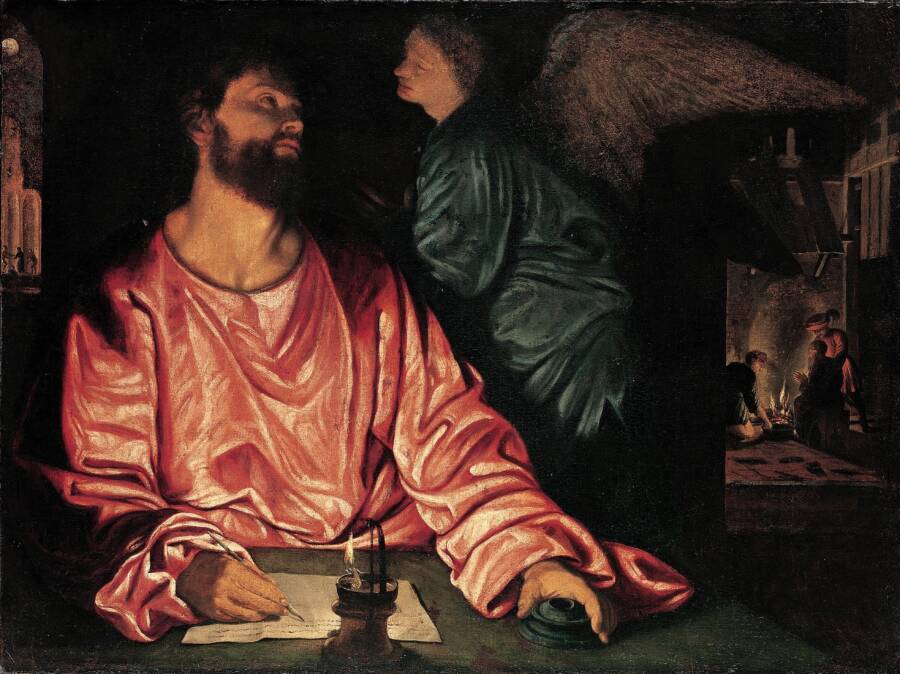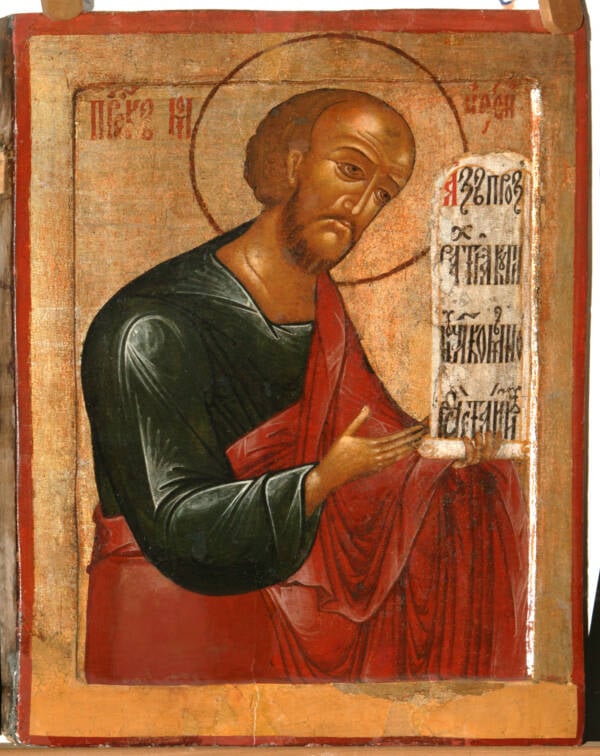Who Actually Wrote The Bible?

Sepia Times/Universal Images Group via Getty ImagesSaint Matthew and the Angel by Giovanni Gerolamo Savoldo.
The Bible is the most-read book across the globe — and one of the most influential. Over the centuries, the Bible’s words have guided the lives of billions of people, which has also led to billions of people interpreting those words differently.
But, who wrote those words in the first place? Religious doctrine would suggest that God is the “author,” in a manner of speaking. Or, at the very least, the Bible is His word as translated by the prophets.
Putting that doctrine aside for a moment, though, there are scholars who have devoted a great deal of time to tracing the historical roots of the Bible’s writings. What they’ve found is that many of the names we have come to associate with the writing of the Bible may not have actually authored it. In fact, some may not have existed at all.

Fine Art Images/Heritage Images/Getty ImagesAn illustration of Moses from 1645.
Moses, for example, is commonly credited with authoring the first five books of the Bible’s Old Testament — Genesis, Exodus, Leviticus, Numbers, and Deuteronomy — and inscribing God’s Ten Commandments in stone sometime around 1,300 B.C.E.
However, outside of scripture, there is little evidence to suggest Moses actually existed. There is also the issue of the book of Deuteronomy describing Moses’ death and burial — which would be a bit difficult for a dead man to write.
Rather, scholars have used internal clues, namely distinct writing styles, to create profiles of authors who may have worked on the first five books, according to the Vatican. “E” stands for Elohist, “J” for Yahwist, “P” for Priestly, and “D” for Deuteronomic.
The Book of Deuteronomy and its author(s) especially stand out, as they often refer to Moses in the third person, use language that wouldn’t have been used in Moses’ time, and identify the location of Moses’ tomb.
There are, of course, other examples similar to this throughout the Bible, including sections allegedly written by Isaiah, Jeremiah, and Ezekiel, and each of the gospels supposedly written by the apostles Matthew, Mark, Luke, and John.
In the end, though, no one has been able to identify any specific individuals or specific schools of people who might have written the accounts in the Bible. Historical evidence has really only shed light onto who didn’t write the Bible. To that end, the answer essentially seems to be, “anyone who is listed as an author.”





